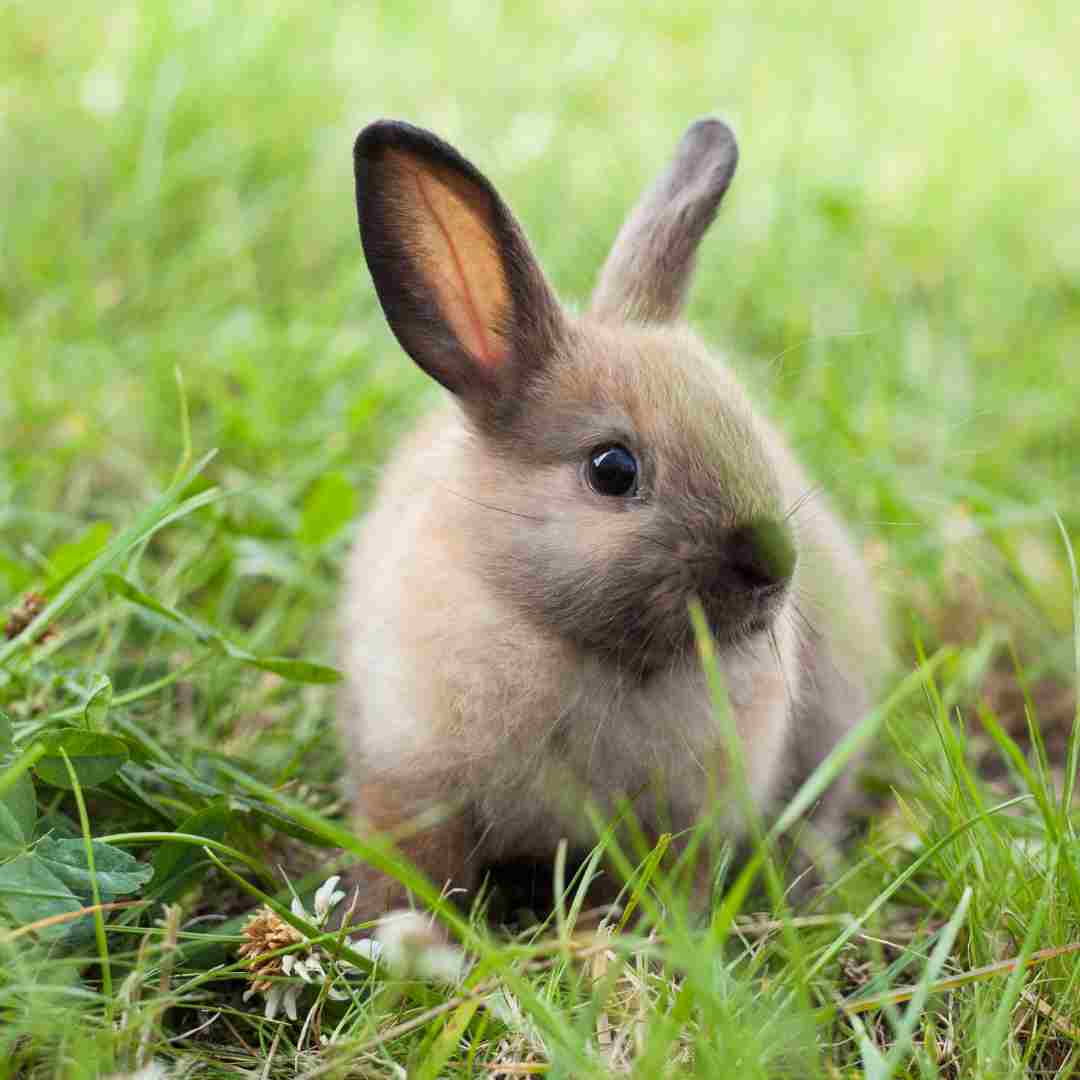Table of Contents
Overview
What Signs Can You Expect from a Rabbit Bite?
Methods for Handling a Rabbit Bite at Home
How to Proceed if You Think a Rabbit May Have Rabies
How to Avoid Rabbit Bites Going Forward
What Dangers Does a Rabbit Bite Pose to Your Long-Term Health?
Q&A
In summary
Overview
In the unfortunate event that you are bitten by a rabbit, you should take the appropriate precautions to protect both yourself and other people. If rabbit bites are not properly treated, they can get infected and cause pain. The possible dangers of a rabbit bite will be covered in this article, along with advice on how to treat the wound and avoid getting worse. We will also talk about how important it is to get medical help if the bite is really bad or if you see any symptoms of infection.
What Signs Can You Expect from a Rabbit Bite?
The symptoms of a rabbit bite can vary based on how severe the bite is. Pain, swelling, and redness at the bite site are the most typical signs of a rabbit bite. Sometimes the region gets contaminated, which can cause fever, chills, and pus leakage, among other symptoms. In more extreme situations, the bite could injure surrounding tissue, resulting in bruises, numbness, and even damage to the nerves.
It's crucial to get medical help as quickly as possible if you've been bitten by a rabbit. Your physician is qualified to determine the extent of the bite and to administer the necessary care. Antibiotics to prevent infection, painkillers to lessen suffering, and in certain situations, a tetanus injection, are possible forms of treatment. Surgery can be required in more serious situations to fix any tissue damage.
Methods for Handling a Rabbit Bite at Home
If rabbit bites are not properly treated, they can get infected and cause pain. In the event that a rabbit bites you, it's critical to take the required actions to treat the wound appropriately and reduce the chance of infection. The information in this article will help you cure a rabbit bite at home.
It's crucial to clean the wound completely before anything else. Wash the area surrounding the bite gently with warm water and soap. This will assist in clearing out any possible dirt or debris. After cleaning the wound, treat the area with an antiseptic solution, such as rubbing alcohol or hydrogen peroxide. This will assist in lowering the infection risk.
Next, treat the wound with a topical antibiotic medication. This will facilitate recovery and help ward off infection. It's critical to get medical help if the wound is deep or bleeding.
Keeping an eye out for infection symptoms on the wound is also crucial. It's critical to get medical help if the wound gets painful, puffy, or red. Furthermore, it's critical to get medical help if the wound doesn't appear to be healing.
Lastly, it's critical to maintain the wound dry and clean. This will facilitate healing and lower the chance of infection. Additionally, it's critical to refrain from picking or itching the wound because doing so raises the possibility of infection.
You may reduce the danger of infection and ensure that your rabbit bite is adequately treated by following these instructions. It's crucial to get medical help if you have any queries or worries.
How to Proceed if You Think a Rabbit May Have Rabies
It's critical to act quickly to safeguard others and yourself from possible rabies exposure if you think a rabbit may have the disease. Reporting the occurrence to your local health department or animal control agency is the first step. They will be in a position to offer advice on how to manage the circumstance safely.
If the rabbit is still alive, it is crucial to keep other humans and animals away from it and to refrain from making contact with it. Never try to handle or catch the animal yourself. Avoid touching or attempting to move the dead rabbit.
Seek medical assistance right away if the rabbit bit or scratched you. Your physician is qualified to determine the likelihood of rabies exposure and to administer the necessary care.
You should also get medical help if you came into contact with the rabbit's bodily secretions, such as its saliva. A course of post-exposure prophylaxis, or a series of vaccinations that can help prevent you from rabies, may be advised by your doctor.
It's critical to keep in mind that rabies is a dangerous and sometimes lethal illness. It is crucial to take the appropriate precautions to shield others and yourself from possible exposure if you think a rabbit may be rabies-positive.
How to Avoid Rabbit Bites Going Forward
Since rabbit bites can be excruciating and even deadly, precautions must be taken to avoid them in the future. The following advice can help you prevent getting bitten by a rabbit:
1. Give the rabbit some room. Being naturally shy creatures, rabbits might get frightened if you approach them too rapidly or go too close. Before attempting to pet or handle the rabbit, give them some time to grow used to your presence.
2. Treat the bunny with care. Always keep a rabbit's feet on the ground and support their hindquarters when handling them. They may become agitated and in discomfort if you ever lift them up by their tail or ears.
3. Steer clear of abrupt motions. Since rabbits are easily frightened, it's crucial to approach them carefully and cautiously. Steer clear of loud noises and abrupt movements that can frighten the rabbit.
4. Establish a secure atmosphere. Verify that the rabbit's enclosure is safe and clear of any possible dangers. Make sure the bunny has an ample amount of room to go around, as well as easy access to toys, food, and water.
5. Watch over the kids. When engaging with rabbits, children should always be supervised because they might not know how to treat them properly. Children should be taught to move carefully and gently around rabbits and to respect their personal space.
You can lessen your risk of rabbit bites in the future by heeding these advice. To protect the safety and wellness of the bunnies, always remember to respect their space and handle them gently.
What Dangers Does a Rabbit Bite Pose to Your Long-Term Health?
There are several long-term health hazards associated with rabbit bites. Infection is the most frequent long-term health concern connected to rabbit bites. Bacteria from rabbit bites can enter a wound and cause an illness. This may result in discomfort, swelling, and redness where the bite was made. If the infection is not treated, it may spread to other body parts and cause more severe health issues.
Tissue damage can also result from rabbit bites. A rabbit's keen teeth have the potential to puncture deep cuts that harm the tissue beneath. This may result in irreversible deformity and scarring. Reconstructive surgery may be necessary in certain instances due to the extreme severity of tissue damage.
Furthermore, damage to nerves may result from rabbit bites. A rabbit's sharp teeth have the potential to injure nerves, resulting in pain, tingling, and numbness in the affected area. If the bite occurs in a delicate location, like the hands or face, this could be quite dangerous.
Ultimately, psychological anguish can result from rabbit bites. Being bitten by a rabbit can be a traumatic event that causes panic, terror, and even persistent stress disorder.
If you believe you have been bitten by a rabbit, you should definitely get medical help. Early intervention can lower the chance of long-term health issues.
Q&A
1. What should I do if a rabbit bites me?
If a rabbit bites you, you should treat the wound right away by cleaning it with soap and water and using an antiseptic. In order to make sure the wound is appropriately treated and to rule out any potential infection, you need also get medical attention.
2. Is getting bitten by a rabbit dangerous?
A rabbit bite is usually not harmful. To make sure the wound is adequately treated and to rule out any potential infection, it is crucial to seek medical assistance.
3. Can an infection result from a rabbit bite?
Infection can really result from a rabbit bite if the wound is not properly cared for. In order to make sure the wound is adequately treated and to rule out any potential infection, it is crucial to seek medical assistance.
4. Can diseases be spread by a rabbit bite?
Indeed, diseases including rabies, tularemia, and myxomatosis can be spread through a rabbit bite. In order to make sure the wound is adequately treated and to rule out any potential infection, it is crucial to seek medical assistance.
5. What should I do if a wild rabbit bites me?
In the event that a wild rabbit bites you, you should apply an antiseptic and clean the wound right away with soap and water. In order to make sure the wound is appropriately treated and to rule out any potential infection, you need also get medical attention. To report the event, you could also get in touch with your local animal control organisation.
In summary
It is crucial that you get medical help as soon as possible if a rabbit bites you. Rabbit bites can be extremely painful and can also spread infection. It's critical to completely clean the wound and cover it till it heals. In case of a severe bite, it's crucial to promptly seek medical assistance.
